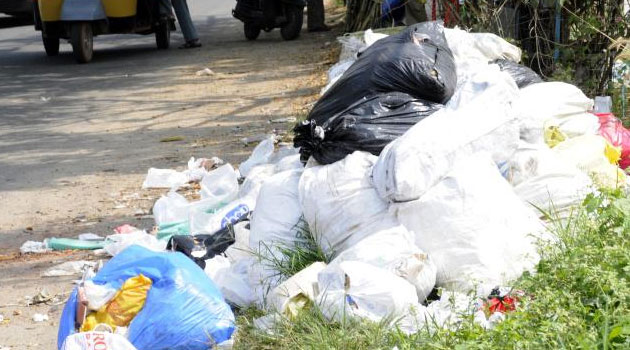
King Plastics Chief Executive Priyav Shah said the ban is a noble initiative but the measures should be geared towards coming up with proper waste management systems especially on disposal of plastic bags/AFP FILE
NAIROBI, Kenya, May 23 – Manufactures are calling upon the government to engage further with them as well as other stakeholders before implementing the ban on plastic bags from September.
In an interview with Capital FM News, King Plastics Chief Executive Priyav Shah said the ban is a noble initiative but the measures should be geared towards coming up with proper waste management systems especially on disposal of plastic bags.
“What we would propose to the government is a waste management levy at one percent value of all raw materials which will be collected fund. It will then be allocated in collaboration with the government for appropriate waste collection, recycling and campaigns. This will ensure that we avoid job losses as well as boost revenue.”
Shah emphasised that the ban will not only have an impact to the manufacturers of plastic bags but to exporters and importers who require their products packaged in polythene bags.
Echoing his sentiments was Kenya Flowers Council’s CEO Jane Ngige who said the plastic bags ban lacks proper guidelines on how to comply with the requirements, emphasising on the need for more time to enable manufacturers’ research on alternative lines of production.
“We have not provided ourselves with alternative guidelines on the usage and disposal of plastic bags. There is need to hold a conversation between the manufacturers and regulators on the implementation of the ban without it being punitive.”
The manufacturers also emphasised the need to create awareness on which plastic bag qualifies to be used not only to industries but also vendors who mostly rely on it for packaging.
Nancy Okello is one such vendor who sells vegetables, “I am aware of the ban,” she says, “but I beg to ask what alternative do I have when it comes to packaging of kales, spinach, this packet of nuts for instance, plastic bags ensure the vegetables remain fresh.”
“But if there is an alternative by all means I will be more than glad to use it, as I too find the ban a noble initiative,” stated Okello.
It’s worth noting that industrial packaging of perishable goods such as meat, vegetables using plastic bags as well as consumable goods such bottled water, yoghurts etc are allowed, but the same is not clear when it comes to packaging of goods by vendors.
Meanwhile, several retail shops have began cutting down on use of plastic bags in line with the upcoming ban.
“We are drawing down our current inventory of plastic bags. The current inventory will only be available while stocks last. Already some branches have cleared their Nakumatt bags inventory and have had to receive stocks from other branches. We are also actively dispensing the kids & co-branded bags as part of the draw down,” according to Nakumatt Holdings.
Shoppers have been urged to carry along a shopping bag or purchase re-usable eco-friendly bags.
“The bags could be kikapus, kiondos or any other multi-use bag that is eco-friendly.”
Last week, Environment Cabinet Secretary Judi Wakhungu appeared before the National Assembly Departmental Committee on Environment and Natural Resources where she declined to extend the time for implementation of the ban to more than six months.
She appeared before the MPs in regards to a petition the committee is prosecuting on the ban of manufacture and use of plastic bags which is set to take effect in September 2017.
Wakhungu told MPs the Bill would not be reversed, adding that stakeholders in the plastic sector have been reluctant in coming up with alternative solutions.
She also dismissed claims that close to 600,000 stands to lose their jobs when the ban takes effect.









































